Trump Kim summit: US wants 'major N Korea disarmament' by 2020
- Published
House speaker Paul Ryan: "Let's go get an agreement"
The US hopes to see "major disarmament" by North Korea by the end of 2020, says Secretary of State Mike Pompeo.
His comments, during a visit to South Korea, follow an unprecedented meeting between President Donald Trump and North Korean leader Kim Jong-un.
They signed a deal agreeing to work towards "complete denuclearisation of the Korean Peninsula".
But the document has been criticised for lacking details on when or how Pyongyang would give up its weapons.
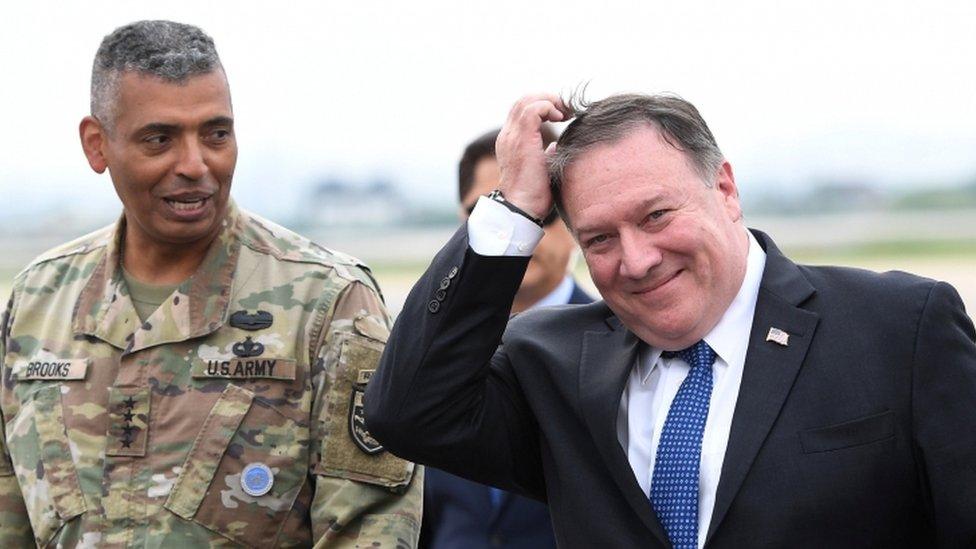
Mike Pompeo (right) is in Seoul, South Korea, to discuss the outcome of Mr Trump's summit
Mr Pompeo travelled from the summit in Singapore to Seoul, where he was briefing South Korea's government on the outcome of the summit.
He said there was still "a great deal of work to do" with North Korea, but added: "Major disarmament... We're hopeful that we can achieve that in the two and half years."
He said he was confident Pyongyang understood the need for any dismantling its nuclear programme to be properly verified - a key .
When asked by reporters why this was not specified in the document signed in Singapore, he condemned their questions as "insulting" and "ridiculous".
Trump Kim summit: What happens now?
President Trump earlier declared that North Korea was no longer a nuclear threat, insisting "everybody can now feel much safer".
The credibility of that claim is in doubt. That is because under the agreement, the North retains its nuclear warheads, the missiles to launch them and has not agreed to any specific process to get rid of them.
Pyongyang has celebrated the summit as a great win for the country.
Allow X content?
This article contains content provided by X. We ask for your permission before anything is loaded, as they may be using cookies and other technologies. You may want to read X’s cookie policy, external and privacy policy, external before accepting. To view this content choose ‘accept and continue’.

What was agreed at the summit?
The two leaders said they would co-operate on building "new relations", while the US would provide "security guarantees" to North Korea.
Pyongyang in return "commits to work toward complete denuclearisation of the Korean peninsula".
Then at a news conference after the meeting, Mr Trump said he would lift sanctions against North Korea once "nukes are no longer a factor".
He said he trusted his instinct that Mr Kim would abide by his word.
Trump Kim summit: Win-win, or a Kim win?
He also announced an unexpected end to military exercises regularly carried out between US and South Korean forces on the peninsula.
The move - long demanded by Pyongyang - has been seen as a major concession to North Korea and appeared to take US allies in the region by surprise.
South Korea's presidential Blue House later clarified that it needed to "find out the precise meaning or intentions" behind Mr Trump's remarks on ending the joint military drills.
After the summit, North Korea's state media said the two leaders had agreed that "step-by-step and simultaneous action" was needed to achieve denuclearisation of the Korean Peninsula.
American hardliners such as Mr Trump's national security adviser John Bolton have previously opposed such a phased approach, whereby the US takes reciprocal action.
How has the deal been received?
Most Western observers have said it includes no new commitments from North Korea nor details on how denuclearisation could be achieved or verified.
Critics also expressed disappointment that Pyongyang's long record of human rights abuses was not addressed.
President Moon Jae-in had on Tuesday hailed the summit as a "historic event", adding that it would be recorded as "[helping] break down the last remaining Cold War legacy on Earth".
Japan's Prime Minister Shinzo Abe spoke to Donald Trump after the summit, saying there was "great meaning in Chairman Kim's clearly confirming to President Trump the complete denuclearisation".
Why North Koreans were last to learn of the Trump-Kim summit
Tokyo also, however, cautioned that despite Pyongyang's pledge for denuclearisation no concrete steps had been taken and that Japan would not let down its guard.
Defence Minister Itsunori Onodera said Japan saw "US-South Korean joint exercises and the US military presence in South Korea as vital to security in East Asia".
Chinese Foreign Minister Wang Yi described the Singapore summit as an "equal dialogue" between the two sides, adding that "no-one will doubt the unique and important role played by China: a role which will continue".
Chinese state media described the summit as a "starting point" but said "no-one would expect the half-day summit to be able to iron out all differences US 'wants N Korea disarmament by 2020'and remove deep-seated mistrust between the two long-time foes".
- Published13 June 2018
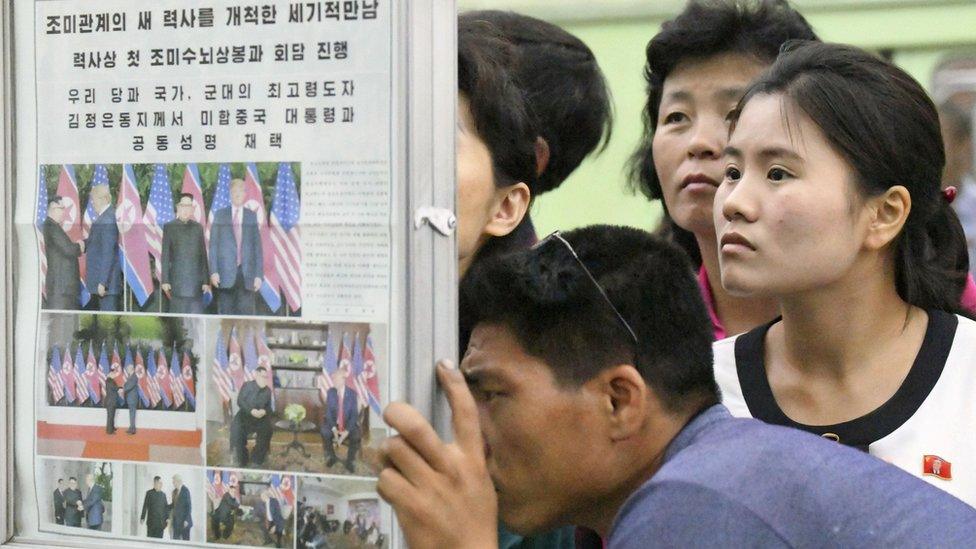
- Published12 June 2018
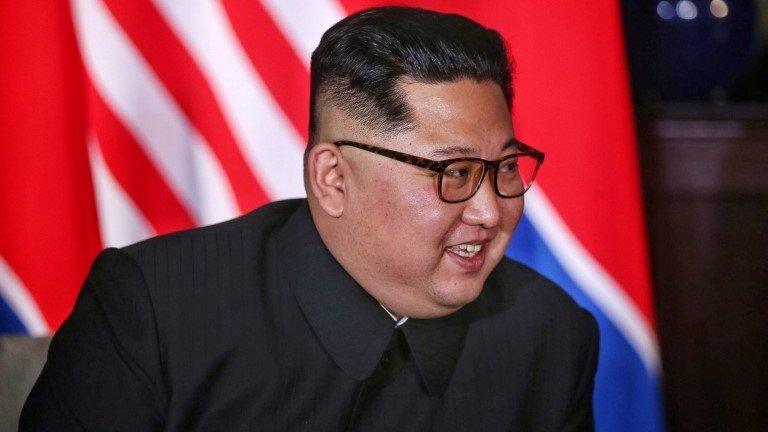
- Published30 August 2018
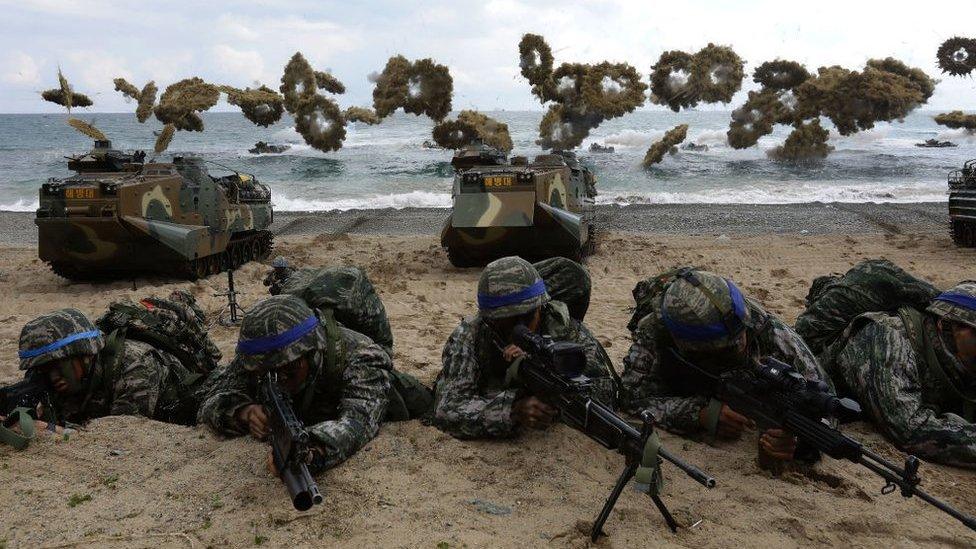
- Published12 June 2018
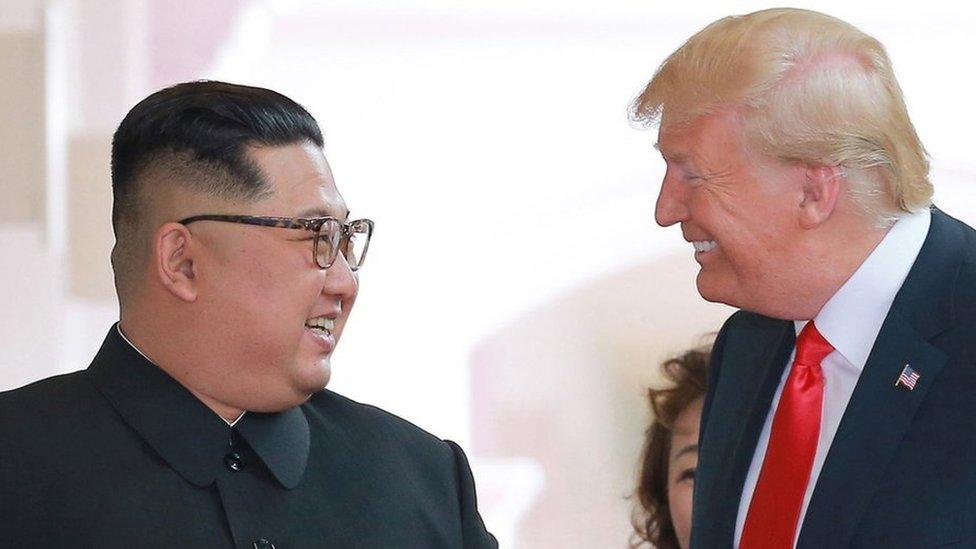
- Published12 June 2018

- Published12 June 2018
- Published12 June 2018
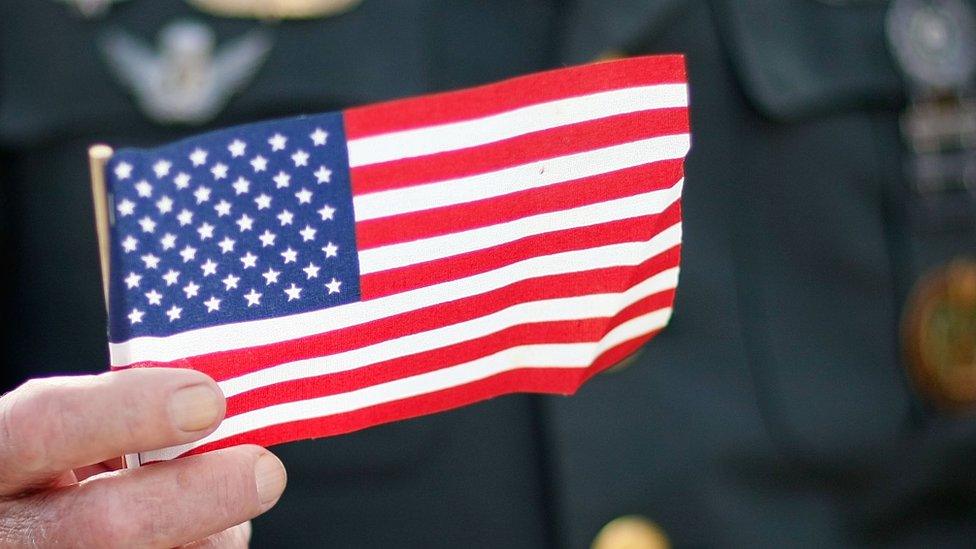
- Published21 April 2020
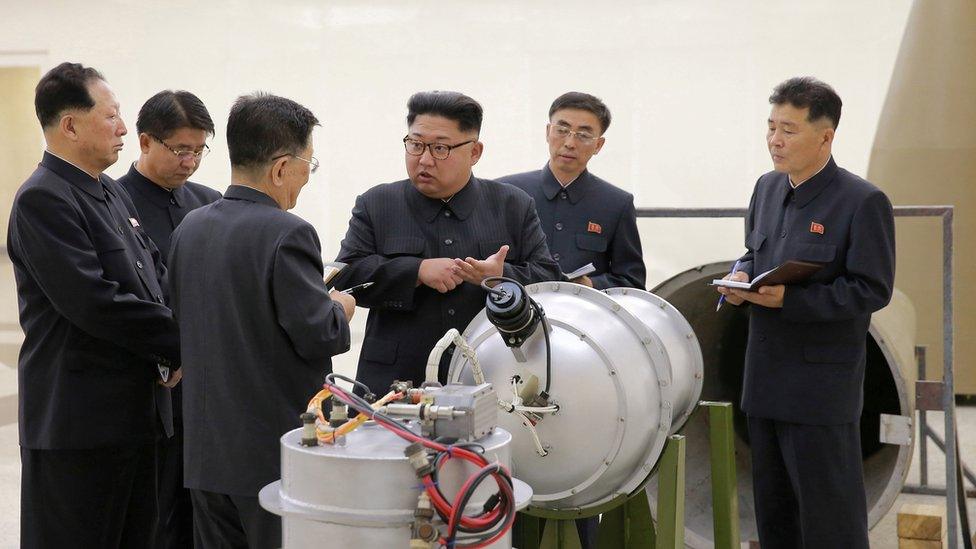
- Published12 June 2018
